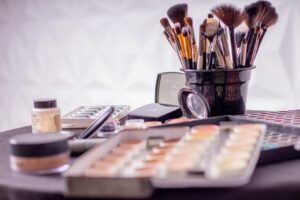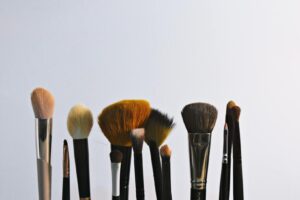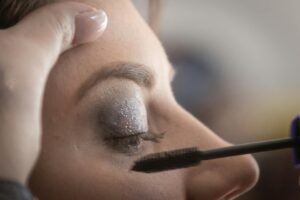In today’s dynamic world, beauty schools are no longer limited to traditional hair and makeup lessons. They’ve evolved, embracing the latest trends and technologies. This article dives deep into the current trends sweeping the beauty school industry.
From innovative teaching methods to the integration of tech-driven tools, beauty schools are staying ahead of the curve. They’re not just shaping future beauty professionals, but also redefining the industry’s standards. Let’s explore these exciting advancements that are transforming beauty education.
Current Trends Beauty School
Beauty schools, at their core, are directories of change, adapting in harmony with evolving industry dynamics.
The Changing Landscape of Cosmetology Education

In recent years, a significant paradigm shift took place in cosmetology education. Classrooms have morphed from fields of practical, hands-on training to institutes that foster analytical thinking and creativity. The incorporation of subjects like business management and customer relations exemplifies a holistic education approach. For instance, many schools now integrate business courses into their curriculum to prepare students for entrepreneurial opportunities.
Emergence of Innovations in Beauty School
Technology, unsurprisingly, has a significant role in molding the new face of beauty schools. Tech-driven tools enhance practical sessions, while virtual reality sets real-time scenarios for students to experience, making learning engaging and fruitful. An innovative example includes the DermVisualizer, a 3D imaging technology assisting students in understanding skin condition diagnosis. Thus, these advancements, augmenting traditional learning methods, usher in a new era of beauty education.
Highlight on Eco-friendly Procedures in Beauty School
In keeping with the current trends in beauty schools, there’s a clear shift towards eco-friendly practices and education. As environmental issues gain precedence, the beauty industry isn’t spared from this global movement.
The Rise of Green Beauty Education
Beauty schools incorporate green beauty education, focusing on skills, knowledge, and techniques that promote eco-friendly beauty practices. Numerous schools, for instance, instruct on the formulation of organic skincare products, highlighting ingredients like aloe vera and jojoba oil. Similarly, eco-hair care education is emerging, concentrating on practices such as low energy hair drying and use of biodegradable hair products. An exceptional emphasis on waste reduction in beauty practices forms another crucial element in this green beauty revolution across schools.
Implications of Eco-friendly Practices in Learning

Introducing students to eco-friendly practices does more than instill environmentally responsible habits. Additionally, it prepares students for a market that’s increasingly demanding green products and services. As consumers grow more aware of environmental implications linked to their product choices, they’re turning towards healthier, sustainable beauty solutions. In response, beauty schools equip students with the needed skills to meet this demand. Moreover, these eco-friendly learning practices foster creativity among students, pushing them to develop innovative, sustainable beauty solutions.
Digital Transformation in Beauty Schools
As indicated by the title, this section delves into the digital shift shaping beauty education. It provides insight into how technology and digital platforms are revolutionizing beauty school curriculums.
How Technology Influences Cosmetology Curriculum
Digital advancements are transforming the pedagogical model in cosmetology schools. The integration of technology into beauty school curriculums provides an effective platform for interactive learning. For instance, technological tools like digital mannequins and color diagnostic software offer a high degree of precision and customization, permitting students to practice and perfect their techniques.
Interactive digital platforms, on the other hand, facilitate in-depth learning of theoretical concepts. Online resources like ebooks, digital tutorials, and video lessons enable students to undertake extensive study in a variety of beauty school subjects, such as physiology and cosmetology chemistry. Furthermore, digital cosmetology simulators offer a hands-on experience. Through the use of virtual reality, they simulate practical scenarios, allowing students to practice their skills in a risk-free environment.
Virtual Beauty Classes: A New Learning Paradigm
Virtual beauty classes present a groundbreaking shift in the way beauty education is delivered. These online platforms cater to modern learners, offering increased flexibility and convenience.

Virtual classrooms offer a vast array of pre-recorded tutorials and live interactive sessions with instructors, breaking geographic barriers and providing education at the learners’ convenience. They also offer interactive tutorials and webinars on various cosmetology subjects, providing a comprehensive and flexible learning experience.
Moreover, virtual beauty classes incorporate advanced learning management systems (LMS) to track students’ progress, deliver content, and conduct assessments. For instance, augmented reality (AR) and virtual reality (VR) technologies offer immersive, experiential learning, enhancing engagement and understanding. In essence, virtual beauty classes are reshaping the future of cosmetology education, providing an innovative and engaging platform for the trainers and learners alike.
Beauty schools are no longer just about mastering hair and makeup. They’re evolving to meet the industry’s changing demands and trends. Embracing innovative teaching methods, they’re incorporating business management and customer relations into their curriculums. In short, beauty schools are at the forefront of industry trends, preparing graduates to drive future growth and innovation in the beauty sector.